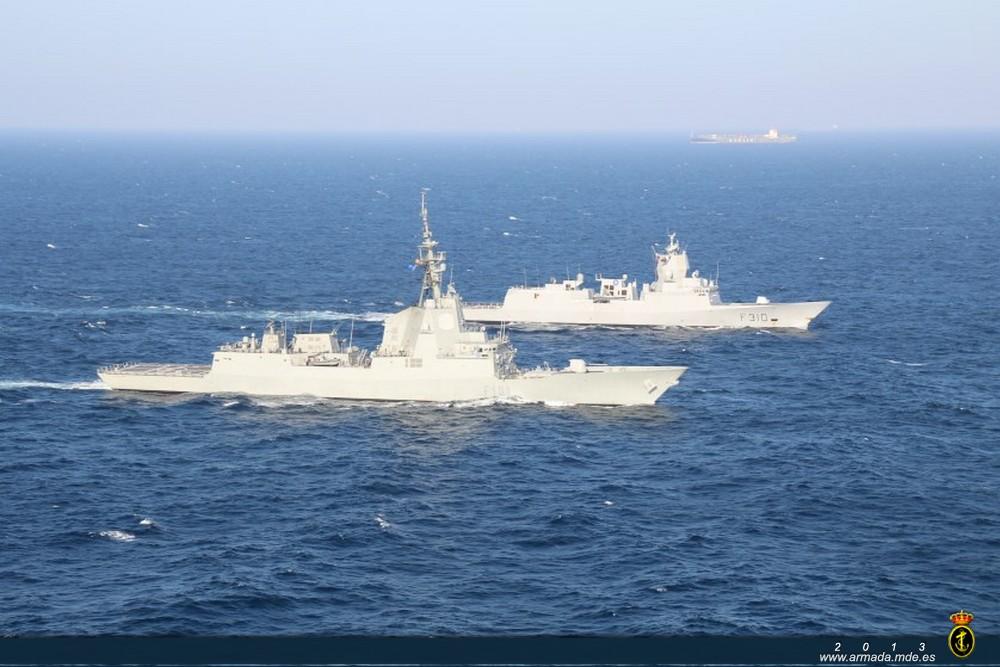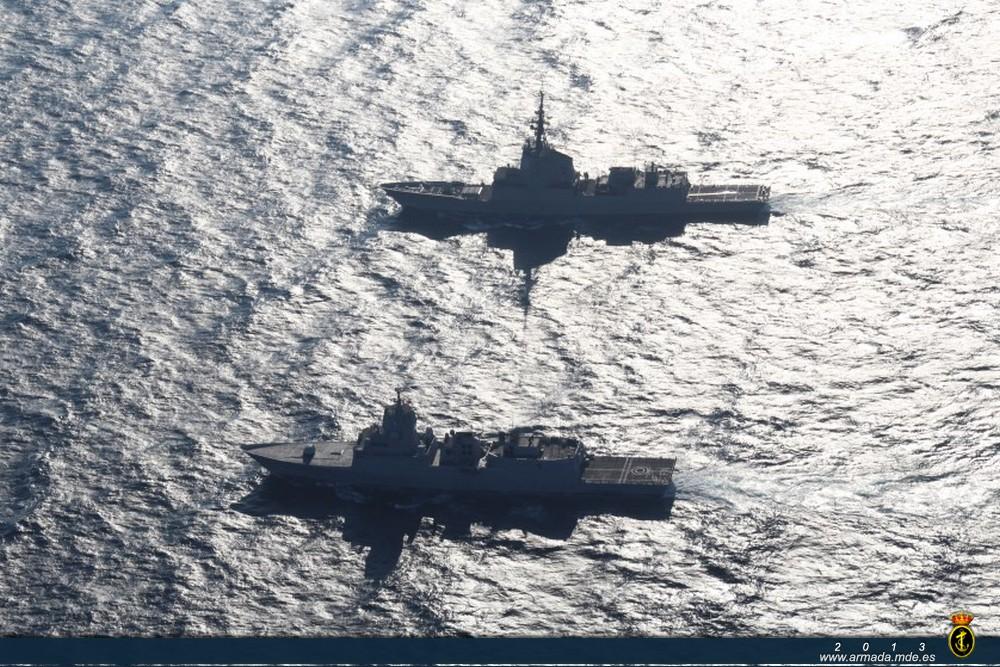The Spanish Navy takes command of NATO’s counter-piracy operation
Tuesday, December 10, 2013
 + 1
+ 1

Rear-admiral Eugenio Díaz del Río, commander of SNMG-2 (Standing NATO Maritime Group 2) has assumed command of operation ‘Ocean Shield’ fighting piracy off the coast of Somalia, after relieving the Norwegian RA Henning Amundsen, commander of the other allied group SNMG-1.
The Spanish frigate ‘Álvaro de Bazán’ embarks the international Staff of SNMG-2 and becomes flagship of this important counter-piracy operation in the Indian Ocean. The Spanish warship has relieved the Norwegian frigate ‘Fridtjof Nensen’.
During the change of command ceremony the outgoing RA underlined the importance of having naval units in the area to safeguard the sea lines of communication and merchant shipping.
International fight against piracy
NATO contributes to fight piracy in the Horn of Africa as of December 2008. With operation ‘Allied Provider’, NATO protected UN ships and World Food Program vessels. The name of the mission was subsequently changed to ‘Allied Protector’ and included the Gulf of Aden.
Within a much holistic approach, NATO organized operation ‘Ocean Shield’ which included the enhancement and development of regional capabilities so that, in the future, local nations may take on maritime security responsibilities.
SNMG-1 and SNMG-2 rotate every six months. The operation is scheduled to conclude at the end of 2014.




